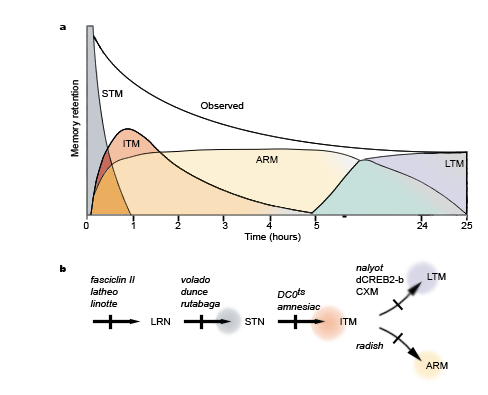Human Memory I
3-4 Minute Read
Author: Bruce Morgenstern, MD
Purpose
To establish an understanding of the processes of memory and memory formation to assist in promoting student learning.
Learning Objectives
Appreciate the complexity of the human brain; and
Recognize that memory formation is complex, sequential, and based upon genetic mechanisms.
If there’s a Human Memory 1, the implication is that there’s more to follow. Well, ain’t that the truth?!
Why even think about memory? Well, if we’re going to be faculty for medical students, shouldn’t we have at least a rudimentary understanding of how we remember things? (Yes, there’s a subtle difference between memory and learning, but that’s another brief for another day.) Are we not scientists who should apply the knowledge about memory to facilitate our students’ learning?
I will now quickly outline the basics of human memory. This introductory series on human memory will make explicit that which “should go without saying.”
Obvious fact #1: The human brain is really complicated.
Even the drosophila brain is amazing. Recently, the drosophila connectome has been mapped (it’s a huge paper, with really cool videos, and it’s probably not complete).1
And yes, drosophila can learn, or at least be trained, and when done correctly, they retain the memory for at least a week, which isn’t bad for a species that tends to live for 60-80 days2 (and let’s not talk about the I’m Not Dead Yet Gene).
Obvious fact #2: With every science, there needs to be a framework as well as facts (data points).
For a more detailed overview, check out these sites, whence much of this was “borrowed.”
https://en.wikipedia.org/wiki/Memory – For our purposes, there’s no real need to read past “procedural memory.”
https://human-memory.net/types-of-memory/ – (Sorry about the ads.)
Obvious fact #3: The human brain, with regard to memory formation, is dependent on genetics and consequent biochemistry.
We’ll come back to the phases of memory abbreviated below in panel a in a separate newsletter installment; the important element of this image is the disruption of certain genes, abbreviated below in panel b, that impair memory formation.3
Don’t let this go to your heads: In addition to drosophila, the following abstract written by colleagues who study plant and animal ecology, reveals that plants have memory too!
“The nervous system of animals serves the acquisition, memorization, and recollection of information. Like animals, plants also acquire a huge amount of information from their environment, yet their capacity to memorize and organize learned behavioral responses has not been demonstrated. In Mimosa pudica—the sensitive plant—the defensive leaf-folding behaviour in response to repeated physical disturbance exhibits clear habituation, suggesting some elementary form of learning. Applying the theory and the analytical methods usually employed in animal learning research, we show that leaf-folding habituation is more pronounced and persistent for plants growing in energetically costly environments. Astonishingly, Mimosa can display the learned response even when left undisturbed in a more favourable environment for a month. This relatively long-lasting learned behavioural change as a result of previous experience matches the persistence of habituation effects observed in many animals.”4 (Big hint for the future – learning is often defined by a change in behavior. So, plants “learn.”)
Here is an interesting panel “plant intelligence and human consciousness” with Dr. Gagliano who works on Mimosa pudica.■
References
Hulse BK, Haberkern H, Franconville R, et al. A connectome of the Drosophila central complex reveals network motifs suitable for flexible navigation and context-dependent action selection. eLife. 2021;doi:10:e66039. doi:10.7554/eLife.66039
Tully T, Preat T, Boynton SC, Del Vecchio M. Genetic dissection of consolidated memory in Drosophila. Cell. 1994;79(1):35-47. doi:10.1016/0092-8674(94)90398-0
Tully T, Bourtchouladze R, Scott R, Tallman J. Targeting the CREB pathway for memory enhancers. Nat Rev Drug Discov. 2003;2(4):267-277. doi:10.1038/nrd1061
Gagliano M, Renton M, Depczynski M, Mancuso S. Experience teaches plants to learn faster and forget slower in environments where it matters. Oecologia. 2014;175(1):63-72. doi:10.1007/s00442-013-2873-7

